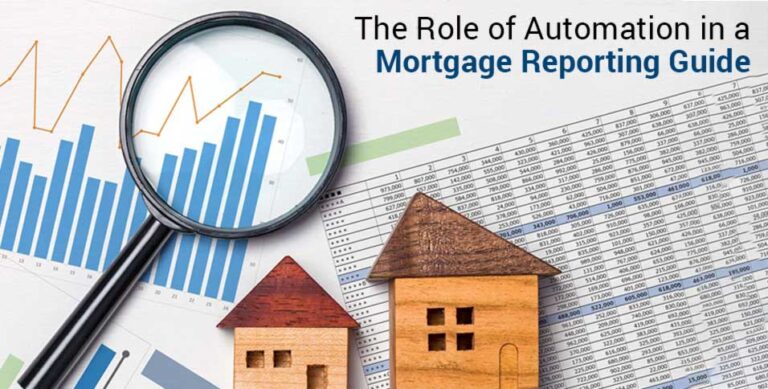In the moving world of finance today, automation plays a significant role, especially in mortgage reporting. The old-fashioned ways, with lots of work, are being replaced by smarter automated systems.
This change isn’t about being fast but about getting things right and being dependable. Taking a look at how automation’s changing mortgage reporting can give important perspectives to those involved in the industry. Now, let’s get to this mortgage reporting guide and learn more.
Efficiency and Speed
Automated systems simplify the process of collecting and processing data while also improving reporting efficiency by cutting down on time-consuming tasks, like entry, that are prone to errors in traditional methods. Automation ensures a flow of data between processes, leading to precise and timely reporting so that financial institutions can focus on strategic activities instead of being overwhelmed by mundane tasks.
Accuracy and Reliability
Manual procedures are prone to errors made by humans, which can result in discrepancies in mortgage documentation that may lead to reputational harm. On the other hand, automated systems reduce these risks by maintaining the integrity of data. By employing algorithms and validation procedures, these systems guarantee the accuracy, consistency, and dependability of information. Such precision plays a key role in meeting requirements and supporting sound decision-making processes.
Cost-Effectiveness
Utilizing automated systems can result in savings in expenses over time despite the costs associated with technology adoption. By automating repetitive tasks and minimizing errors and risks, financial institutions can redirect their resources toward fostering progress and creativity.
Enhanced Data Security
Data security is crucial in the world of finance. Manually handling information raises the possibility of data breaches. Automated systems often have high-level security measures, like encryption and access controls, to safeguard data. These steps help keep information safe, respecting the trust of customers and partners. Robust security protocols also assist in meeting standards.
Regulatory Compliance
Staying in line with changing regulations poses a hurdle for mortgage reporting tasks. The use of automated systems can be set up to keep abreast of modifications to ensure that reports align with the recent norms. This flexibility lowers the chances of violating regulations that could lead to financial consequences. Automation aids in upholding a thinking strategy toward meeting obligations and guarantees that businesses stay compliant consistently.
Improved Customer Experience
Automating mortgage reporting can improve the customer experience, too, as clients anticipate getting timely updates on their mortgage needs met promptly and accurately by automated systems, which are essential in providing clients with the information without any unnecessary delays. Furthermore, automation can aid in fostering communication and transparency, which helps build client trust and satisfaction.
Scalability and Flexibility
As financial companies expand their operations and grow in size over time, the demands for reporting become more intricate and detailed. Automated systems provide the ability to scale up efficiently and handle large amounts of data without sacrificing accuracy or effectiveness. These systems can also be tailored to meet reporting needs, providing a solution for financial institutions as they navigate their evolving reporting requirements.
Data Analytics and Insights
Automating processes makes reporting more efficient and boosts the potential of data usage systems. Automated systems can scrutinize large amounts of data to spot trends and irregularities. These observations can guide decision-making processes, aid financial organizations in refining their functions, and boost effectiveness. Being able to precisely assess data can offer an edge in the realm of mortgage lending.
Final Thoughts
Automation integration in mortgage reporting represents a paradigm shift in the financial sector. By enhancing efficiency, accuracy, and security, automated systems address many of the challenges associated with traditional reporting methods. Moreover, they offer cost savings, ensure regulatory compliance, and improve customer experiences. As technology continues to evolve, the role of automation in mortgage reporting will probably become even more pronounced, driving further innovation and efficiency in the industry. Financial institutions that embrace these technological advancements will be better positioned to navigate the complexities of the mortgage market and achieve long-term success.
Also Read: Boosting Mortgage Business Productivity with Timesheet Applications















